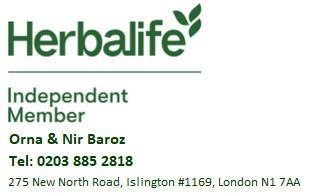
How to make good nutrition choices when shopping in super market?
Share
Making good nutrition choices when shopping in a supermarket is essential for maintaining a healthy diet. Here are some tips to help you make informed and nutritious choices while grocery shopping:
1. Plan Your Meals: Before heading to the store, make a list of the meals and snacks you plan to prepare for the week. This will help you focus on buying what you need and reduce impulse purchases.
2. Eat Before You Shop: Avoid shopping when you're hungry. Hunger can lead to impulsive and less healthy food choices. Have a healthy snack or meal before you go shopping.
3. Read Food Labels: Pay attention to the nutrition labels on packaged foods. Look for products with lower amounts of added sugars, saturated fats, and sodium. Also, check the ingredient list to avoid highly processed foods with long lists of additives.
4. Choose Whole Foods: Focus on fresh, whole foods like fruits, vegetables, lean proteins, whole grains, and legumes. These foods tend to be more nutritious and have fewer additives.
5. Shop the Perimeter: In many supermarkets, the fresh produce, meat, dairy, and whole grain sections are located around the perimeter of the store. Spend more time shopping in these areas, as they often contain healthier options.
6. Limit Processed Foods: Processed and packaged foods often contain high levels of added sugars, unhealthy fats, and sodium. Try to limit your purchases of these items.
7. Compare Prices and Brands: Compare prices and brands to find the best options for your budget. Sometimes, generic or store brands can be just as nutritious as name brands but cost less.
8. Buy in Bulk: For non-perishable items like rice, pasta, and canned goods, consider buying in bulk. This can save you money in the long run.
9. Opt for Lean Proteins: Choose lean cuts of meat, poultry, and fish. If you're vegetarian or vegan, include plant-based sources of protein like tofu, beans, and lentils in your cart.
10. Choose Healthy Fats: Select cooking oils like olive oil or avocado oil, and include sources of healthy fats like nuts, seeds, and avocados in your diet.
11. Limit Sugary Beverages: Avoid sugary drinks like soda and fruit juices, which are high in added sugars. Opt for water, herbal tea, or unsweetened beverages instead.
12. Be Mindful of Portion Sizes: Pay attention to portion sizes, especially when buying snacks and packaged foods. Smaller portions can help prevent overeating.
13. Check for Special Dietary Needs: If you have dietary restrictions or specific health needs, look for products labeled as gluten-free, low-sodium, or suitable for your dietary requirements.
14. Stay Hydrated: Don't forget to buy plenty of water and stay hydrated. It's one of the simplest but most important aspects of a healthy diet.
15. Minimize Impulse Buys: Stick to your shopping list and try to resist impulse buys. These often include less nutritious items like snacks and sugary treats.
Remember that making healthy choices at the supermarket is just one part of a balanced diet. It's also important to practice portion control, mindful eating, and overall dietary consistency to maintain good nutrition.
Contact us for any question or advice
